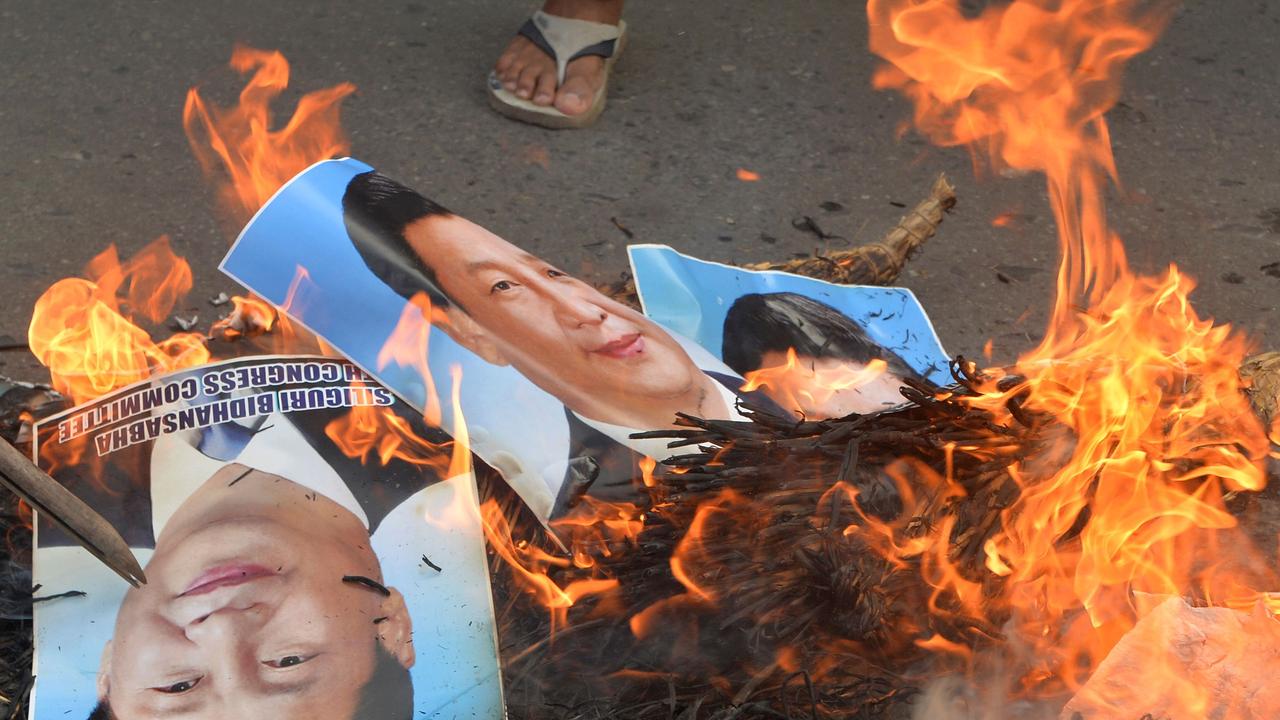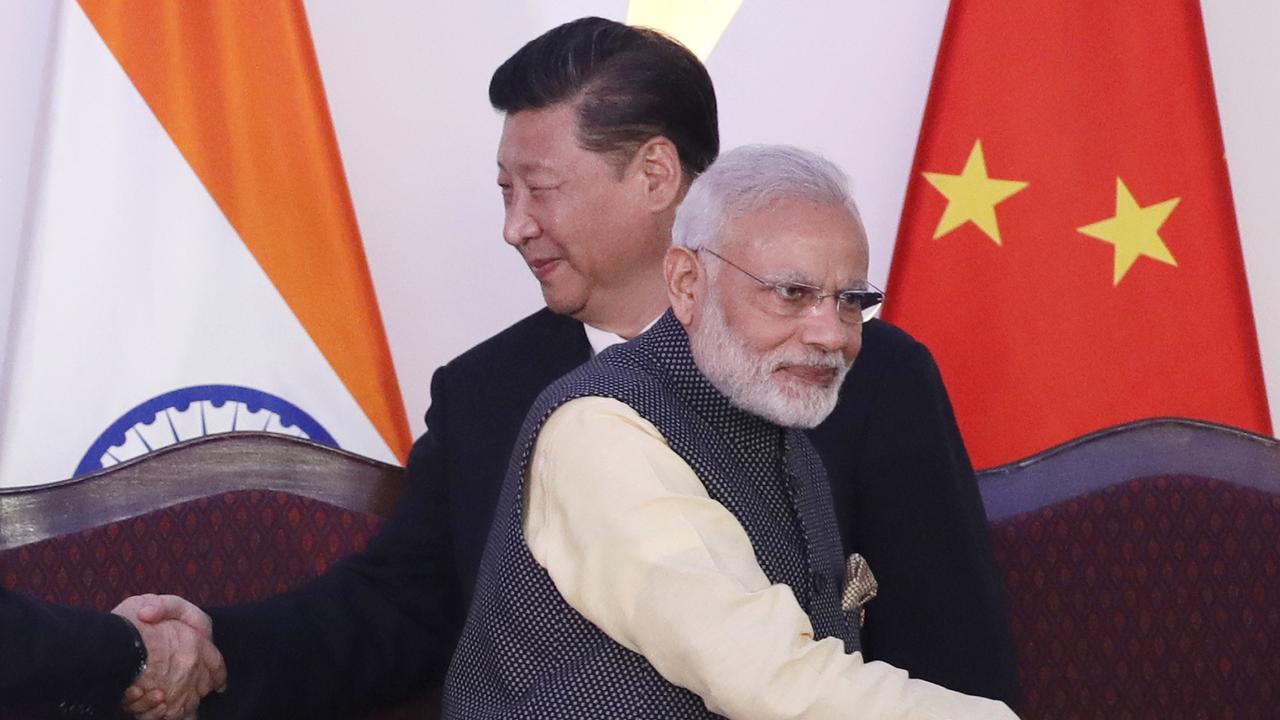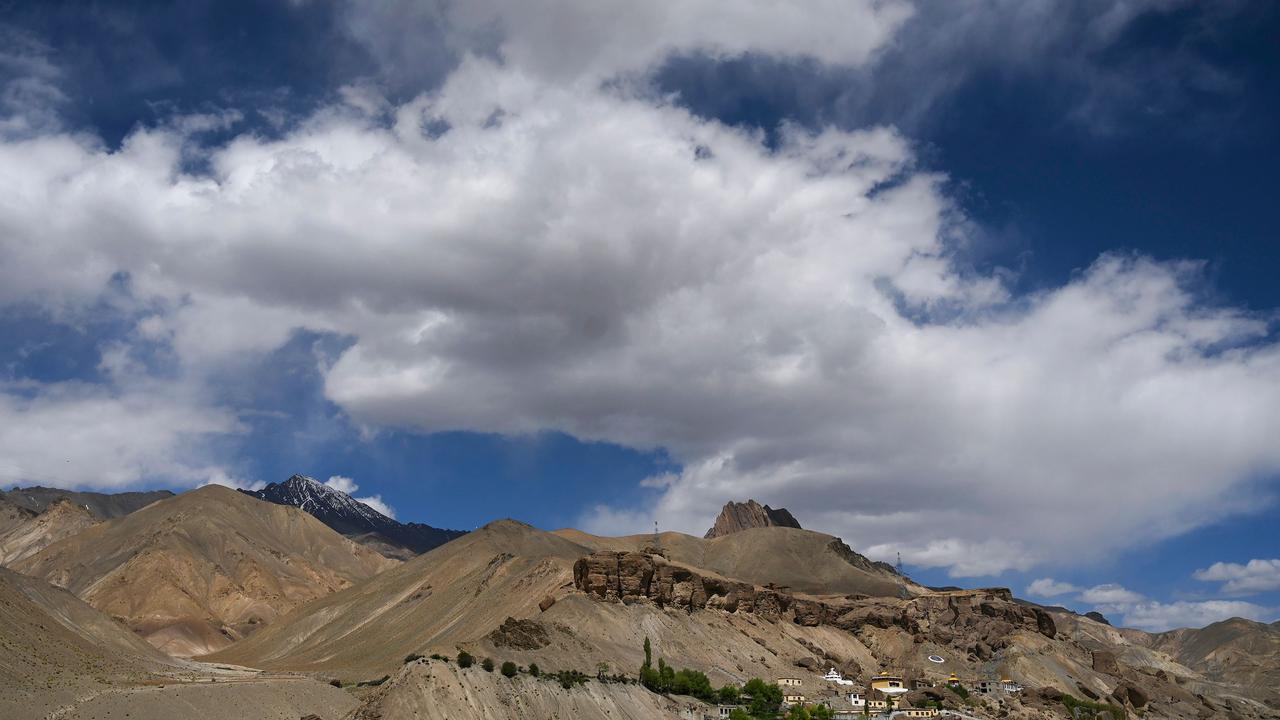China-India border dispute: Beijing warns it is ‘not afraid’ to go to war on Himalayan border as tensions rise
China’s state media has warned it is “not afraid” to go to war with India, comparing it to a bloody conflict that saw thousands of fatalities.
China’s state media has warned it is “not afraid” to go to war with India, comparing it to the 1962 conflict that saw over 2000 fatalities.
In a new article last night, the Global Times newspaper warned that New Delhi would be “more humiliated than 1962” if it were to launch a new conflict.
RELATED: Why world should worry about worsening border conflict
The year is a reference to the first major war between India and China, which occurred over a dispute about the Himalayan border. The current tensions are playing out in the same place.
“Chinese military observers said that an escalated, large-scale military conflict involving main Chinese troops, if that were to happen, would mean a rout just like the war in 1962, with very disproportionate casualty figures unfavourable to India,” the article said.
The war in 1962 resulted in more than 1000 Indian deaths and over 3000 Indians taken as prisoners over the course of the month-long battle. The Chinese military saw fewer than 800 deaths.
The article went on: “In a potential self-defence counter-attack, China will secure its own territory and not likely claim Indian territory after emerging victorious, but the battle will deeply hurt India so much that global position and economy would go backwards to decades ago.”

It comes after a dispute along the Galwan Valley water reservoir turned fatal last week, with 20 Indian troops dead after a brawl with Chinese troops. Chinese casualties have remained secret.
The confrontation in the Galwan Valley, part of the disputed Ladakh region along the Himalayan frontier, was the deadliest between the two countries in 45 years. India blames China for instigating the fight by developing infrastructure in the valley, which it said was a breach of the agreement of what area remained in dispute.
Addressing India this week, Prime Minister Narendra Modi said he would not compromise on “integrity and sovereignty”.
“India wants peace, but if instigated, India at all costs is capable of giving an appropriate response,” he warned.
China quickly shot back, with Foreign Minister Wang Yi saying it was Indian forces who were responsible for “provocative actions”.
“The Indian side must not misjudge the current situation and must not underestimate China’s firm will to safeguard territorial sovereignty,” he said.
EXPERTS WARN OF A ‘NUCLEAR WINTER’
Experts say India will likely turn to China’s rivals as border tensions continue to rise, warning that nuclear weapons could play into it.
RMIT’s Joe Siracusa says the dispute between China and India is important as they all “have nuclear weapons,” and the Communist Party should be wary as Indian Prime Minister Narendra Modi ”is not afraid of a war”.
India claimed on Tuesday that 20 soldiers were killed by Chinese forces in border clashes which happened after several weeks of stand offs in the western Himalayas.

Mr Siracusa said he believed India will “increasingly turn to Japan, the United States and even to Australia” as clashes continue with China.
“I think because of the pressure that China is putting on India, and keep in mind here, the Indians can give the Chinese a lesson here,” he said. “In the meantime, I think the Chinese will put a lot of pressure on Pakistan to put a lot of pressure on India.”
He also said these tensions have the potential to be more devastating than the war of 1962.
“In 1962, all these people were going at each other, but they didn‘t have nuclear weapons. Today, all the players in South Asia have nuclear weapons.
“In exchange of 10 or 15 missiles there are warheads, which would induce the ‘nuclear winter’ that Carl Sagan predicted in the 1980s. There could be all kinds of hell to pay for that.
“Will they use nuclear weapons for a border dispute? Not because they want to, but because it might escalate or accidentally move into that area.”
CHINA BOLDLY RENEWS CLAIMS TO DISPUTED AREA
China said the Galwan Valley – high up in the Himalayan border region where Chinese and Indian troops engaged in a deadly brawl last week – falls entirely within China, boldly renewing claims on the disputed area.
Chinese Foreign Ministry spokesperson Zhao Lijian said in a statement on Friday that “the Galwan Valley is located on the Chinese side of the Line of Actual Control in the west section of the China-India boundary.”
He blamed incursions by Indian troops in the area from early May for a midnight clash on Monday that left 20 Indian soldiers dead. China has not said whether it suffered any casualties.
Soldiers brawled with clubs, rocks and their fists in the thin air at 4270 meters (14,000 feet) above sea level, but no shots were fired, Indian officials have said. The soldiers carry firearms but are not allowed to use them under a previous agreement in the border dispute.
Indian security officials have said the fatalities were caused by severe injuries and exposure to subfreezing temperatures.

The valley falls within a remote stretch of the 3380km Line of Actual Control (LAC) – the border established following a war between India and China in 1962 that resulted in an uneasy truce.
Indian Ministry of External Affairs spokesperson Anurag Srivastava repeated on Saturday that China’s claims to the valley were “exaggerated and untenable”.
“They are not in accordance with China’s own position in the past. Indian troops are fully familiar with the alignment of the LAC in all sectors of the India-China border areas, including in the Galwan Valley. They abide by it scrupulously here, as they do elsewhere,” Mr Srivastava said in a statement.
Mr Modi said in a meeting with political opposition leaders on Friday that no one “has intruded into our territory, nor taken over any post”.
He said India was “hurt and angry” about the deaths of its troops. While India wanted peace and friendship, Mr Modi said it had the “capability that no one can even dare look toward an inch of our land”.
Also on Friday, Mr Zhao, the Chinese Foreign Ministry spokesperson, said China was not holding any Indian soldiers, without addressing media reports that China had released 10 of them late on Thursday.
“My information is that at present there are no Indian personnel detained on the Chinese side,” Mr Zhao said, according to an English version of his daily briefing posted on the ministry’s website.
Indian officials have denied that any soldiers were in Chinese custody.
– With AFP
Originally published as China-India border dispute: Beijing warns it is ‘not afraid’ to go to war on Himalayan border as tensions rise


